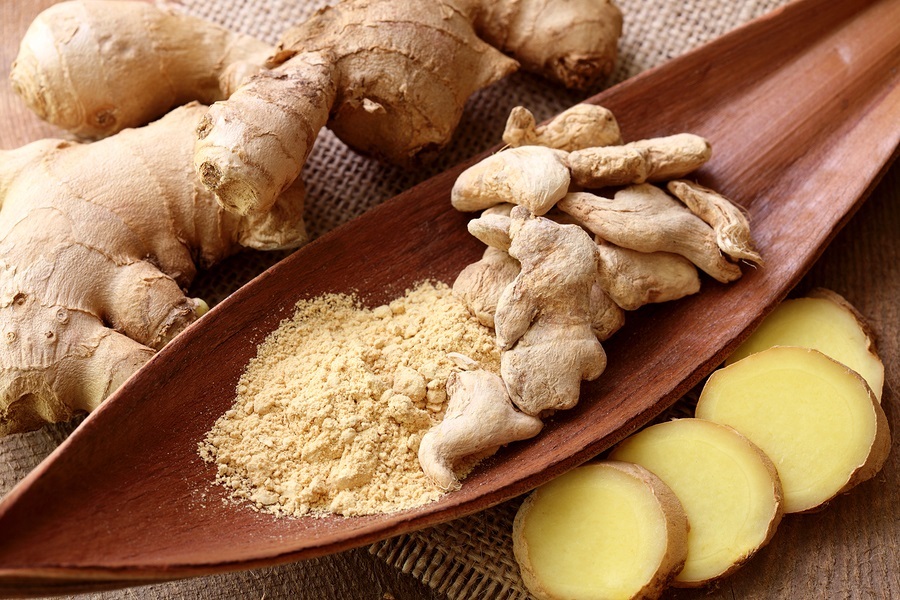Health Benefits of Ginger and Nutritional Information
Ginger is a common ingredient in Asian and Indian cuisine. However, ginger has been used for its medicinal properties for centuries among many cultures.
Ginger has a long history of use for relieving digestive problems such as nausea, loss of appetite, motion sickness and pain.
The root or underground stem (rhizome) of the ginger plant can be consumed fresh, powdered, dried as a spice, in oil form or as juice. Ginger is part of the Zingiberaceae family, alongside cardamom and turmeric.
This MNT Knowledge Center feature provides a nutritional breakdown of ginger, an in-depth look at its possible health benefits, how to incorporate more ginger into your diet and any potential health risks of consuming ginger.

Possible health benefits of ginger
Consuming fruits and vegetables of all kinds has long been associated with a reduced risk of many lifestyle-related health conditions.
Many studies have suggested that increasing consumption of plant foods like ginger decreases the risk of obesity, diabetes, heart disease and overall mortality while promoting a healthy complexion and hair, increased energy and overall lower weight.
Digestive issues
The phenolic compounds in ginger are known to help relieve gastrointestinal irritation, stimulate saliva and bile production and suppress gastric contractions and movement of food and fluids through the GI tract.
Nausea
Chewing raw ginger or drinking ginger tea is a common home remedy for nausea during cancer treatment. Pregnant women experiencing morning sickness can safely use ginger to relieve nausea and vomiting, often in the form of ginger lozenges or candies.
Pain reduction
A study involving 74 volunteers carried out at the University of Georgia found that daily ginger supplementation reduced exercise-induced muscle pain by 25%.
Ginger has also been found to reduce the symptoms of dysmenorrhea (severe pain during a menstrual cycle). In one study, 83% of women taking ginger capsules reported improvements in pain symptoms compared to 47% of those on placebo.
Inflammation
Ginger has been used for centuries to reduce inflammation and treat inflammatory conditions.
A study published in Cancer Prevention Research journal found that a ginger root supplement administered to volunteer participants reduced inflammation markers in the colon within a month. Researchers on the study explained that by decreasing inflammation, the risk of colon cancer is also likely to decrease. Ginger has also shown promise in clinical trials for treating inflammation associated with osteoarthritis.

Ginger – nutritional breakdown
Using fresh ginger is an easy way to flavor foods and drinks without adding unnecessary sodium. Since it is often consumed in such small amounts, ginger does not add significant quantities of calories, carbohydrate, protein or fiber.
Ginger does contain numerous other anti-inflammatory and antioxidant compounds beneficial to health such as gingerols, beta-carotene, capsaicin, caffeic acid, curcumin and salicylate.
Ginger provides a variety of vitamins and minerals:
Carbohydrate – 17.77 g
Dietary Fiber – 2 g
Protein – 1.82 g
Dietary Fiber – 2 g
Sugars – 1.7 g
Sodium – 13 mg
Vitamin B6 – 0.16 mg
Calcium – 16 mg
Iron – 0.6 mg
Vitamin C – 5 mg
Potassium – 415 mg
Magnesium – 43 mg
Phosphorus – 34 mg
Zinc – 0.34 mg
Folate – 11 mcg
Riboflavin – 0.034 mg
Niacin – 0.75 mg
Iron – 0.6 mg
Figures above are per 100g of ginger.































